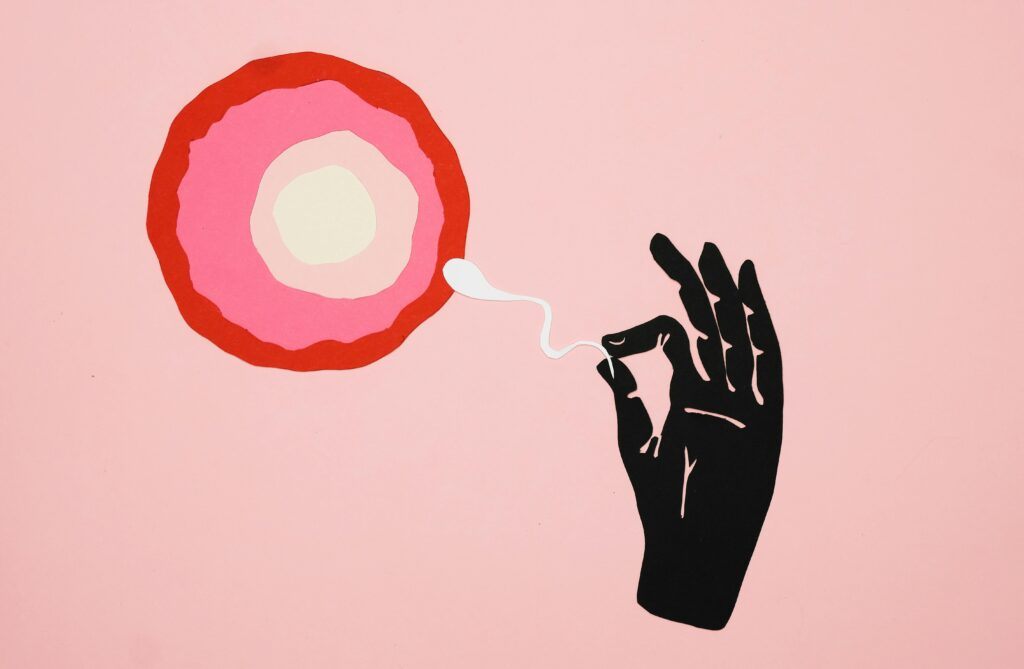As a Pelvic Health therapist specializing in Men’s Health, the topic of infertility often comes up. Most of the men we treat at Pelvis NYC come to us with a diagnosis of CPPS (Chronic Pelvic Pain Syndrome). This diagnosis is an umbrella term that can refer to pain and dysfunction pertaining to the penis, testes, and rectum. One of many concerns these men have is infertility. Given the ambiguity of the diagnosis, men are left to wonder if they will be able to conceive naturally. Luckily for these men, to date, there have been no findings to correlate CPPS and Infertility. However, given that we have treated thousands of men at this point, it only makes sense that we get some while they are navigating infertility with their partner.
To get a better sense of what our patients go through I went onto r/maleinfertility on reddit to get an inside scoop of what they deal with. The group has grown to an impressive 11,000 members—men bravely sharing their experiences, questions, and insights on a journey that’s often isolating. It was encouraging to see a supportive space where men and their partners could seek guidance, learn from each other, and discuss the challenges of infertility openly. Common questions include:
- How do I read a sperm analysis?
- Is my result normal?
- Are there natural ways to improve fertility?
- Do I really need to do IVF?
As a physical therapist specializing in men’s pelvic health, I often see patients who feel sidelined in conversations about infertility. Society often frames infertility as a women’s issue, yet male factors contribute to nearly half of all infertility cases. Most of these men want to be as helpful as possible but aren’t included in the fertility discussion until the later stages. The reverse is often true as well, women can feel that they are “broken” which can lead to feelings of decreased self worth, guilt and shame. This can cause both parties involved to feel helpless, frustrated and hopeless.
Infertility doesn’t define who you are, but understanding and addressing it can be incredibly empowering.
Understanding Male Infertility
Here is a pie chart showing the prevalence of infertility among U.S. men of reproductive age. Approximately 9% of these men experience infertility, illustrating a notable impact that affects many couples. This visualization underscores that male infertility, affecting about 1 in 10 men, is a significant part of the overall infertility landscape in the U.S.
Male infertility can be caused by a range of factors. Here are five of the most common causes:
- Sperm Production Issues – One of the main causes of male infertility is low sperm production, poor sperm quality, or abnormalities in sperm function. This can be due to genetic disorders, infections, or hormonal imbalances, as well as lifestyle factors like smoking, alcohol consumption, and certain medications (Agarwal et al., 2015).
- Hormonal Imbalances – Hormones from the pituitary gland, hypothalamus, and testes regulate sperm production. Conditions that cause hormonal imbalances, such as hypogonadism or endocrine disorders, can impair sperm production and function (Krausz & Riera-Escamilla, 2018).
- Obstructions in the Reproductive Tract – Blockages in the ducts that carry sperm (like the vas deferens or epididymis) prevent sperm from reaching the ejaculate. These blockages may be congenital or due to infections, injury, or surgeries (Schlegel & Girardi, 2019).
- Genetic Disorders – Chromosomal abnormalities, such as Klinefelter syndrome, can impact testicular development and lead to infertility. Y chromosome microdeletions, which affect sperm production genes, are also linked to male infertility (Tüttelmann et al., 2018).
- Lifestyle and Environmental Factors – Exposure to toxins, such as pesticides, heavy metals, and radiation, can negatively impact sperm production. Additionally, factors like stress, obesity, poor diet, and substance abuse are known to decrease fertility (Carlsen et al., 2020).
Emotional Impact of Male Infertility
For many men, infertility affects not just their ability to conceive but also their sense of self-worth and masculinity. The process of confronting infertility can be emotionally draining and lonely, and communities offer essential support . Finding answers online can be a great start, but websites like Reddit can quickly backfire due to the negativity bias the site often attracts.
Barriers Men Face in Addressing Infertility
In my practice, I often hear from men who experience significant challenges in seeking help for infertility. Here are some common obstacles:
1. Social Stigma and Silence
Many men feel infertility is primarily seen as a women’s issue, making it difficult for them to open up. In their words:
“It feels like infertility is only seen as a women’s issue. I didn’t even know there were resources for men like me, and I can’t talk about this with friends or family.”
2. Limited Resources and Specialist Access
Even in urban areas like New York City, affordable fertility treatments can be hard to access. Fertility treatments are costly, and often, insurance doesn’t cover them. As a result, some men delay treatment, which can compound the issue.
“Even in New York, finding affordable fertility treatments is tough. The cost of tests and consultations is high, and none of it is covered by insurance. Sometimes it feels like it’s just not possible.”
3. Information Gaps and Medical Misinformation
Understanding male infertility requires accurate information and guidance, yet many men struggle to find reliable sources. This often leads to frustration and confusion.
“I’m lost on where to start with fertility testing. There’s so much conflicting information online, and without someone to guide me, I just end up more frustrated and unsure.”
What Doctors deal with Male Infertility?
Urologist/Andrologists are physicians that specialize in male infertility and reproductive health. These physicians can diagnose baseline reproductive markers by a simple blood test. Of course fertility itself tends to be more complex and might require a consultation with a reproductive endocrinologist who will collaborate with your urologist to provide a comprehensive treatment approach.
How Physical Therapy Can Support Male Infertility
As physical therapists specializing in pelvic health, we’re here to offer non-invasive, holistic support for men navigating infertility. Here’s how our targeted approach to physical therapy can make a difference:
1. Enhancing Pelvic Health
Our work focuses on the alignment, muscle tension, and flexibility in the pelvic area. For instance in women, tension in the pelvic floor muscles can hinder normal uterine function and impair conception. By releasing muscle tension and improving alignment, we can help support reproductive function, alleviate pain, and boost comfort.
2. Managing Stress and Anxiety
Infertility often brings emotional and mental stress, and stress can disrupt hormone balance. We use techniques like guided relaxation and biofeedback to help you relax, both mentally and physically. Managing stress doesn’t just feel good—it can also support healthier hormonal levels.
3. Promoting a Healthier Lifestyle
We guide you toward realistic, effective exercise routines that support a healthy weight and general wellness. Regular movement and balanced weight can positively impact hormones and fertility, giving your body the support it needs.
4. Boosting Blood Flow
Good circulation is key to reproductive health, so we incorporate exercises and stretches that improve blood flow to the reproductive organs. Enhanced blood flow helps support tissue health and sperm production.
5. Relieving Pain and Muscular Dysfunction
For those dealing with chronic pelvic pain or muscle tightness, we offer manual therapy, stretching, and strengthening exercises that reduce pain and improve muscle function. This focus on pelvic health directly benefits reproductive wellness.
In Summary
It is imperative to consult the proper medical professionals to get an accurate diagnosis. The great news is that an array of treatments are available, and the success rates of conceiving through fertility treatments have been steadily improving over the years. Physical therapy provides a whole-body approach to male fertility support, addressing the physical, emotional, and lifestyle factors that play a role. We’re here to help you reduce pain, manage stress, and improve pelvic health—important steps that can complement medical treatments. Whether you’re just starting your fertility journey or looking for additional support, we’re ready to offer practical, empowering tools along the way. And remember, communities provide vital support in your journey navigating fertility.




